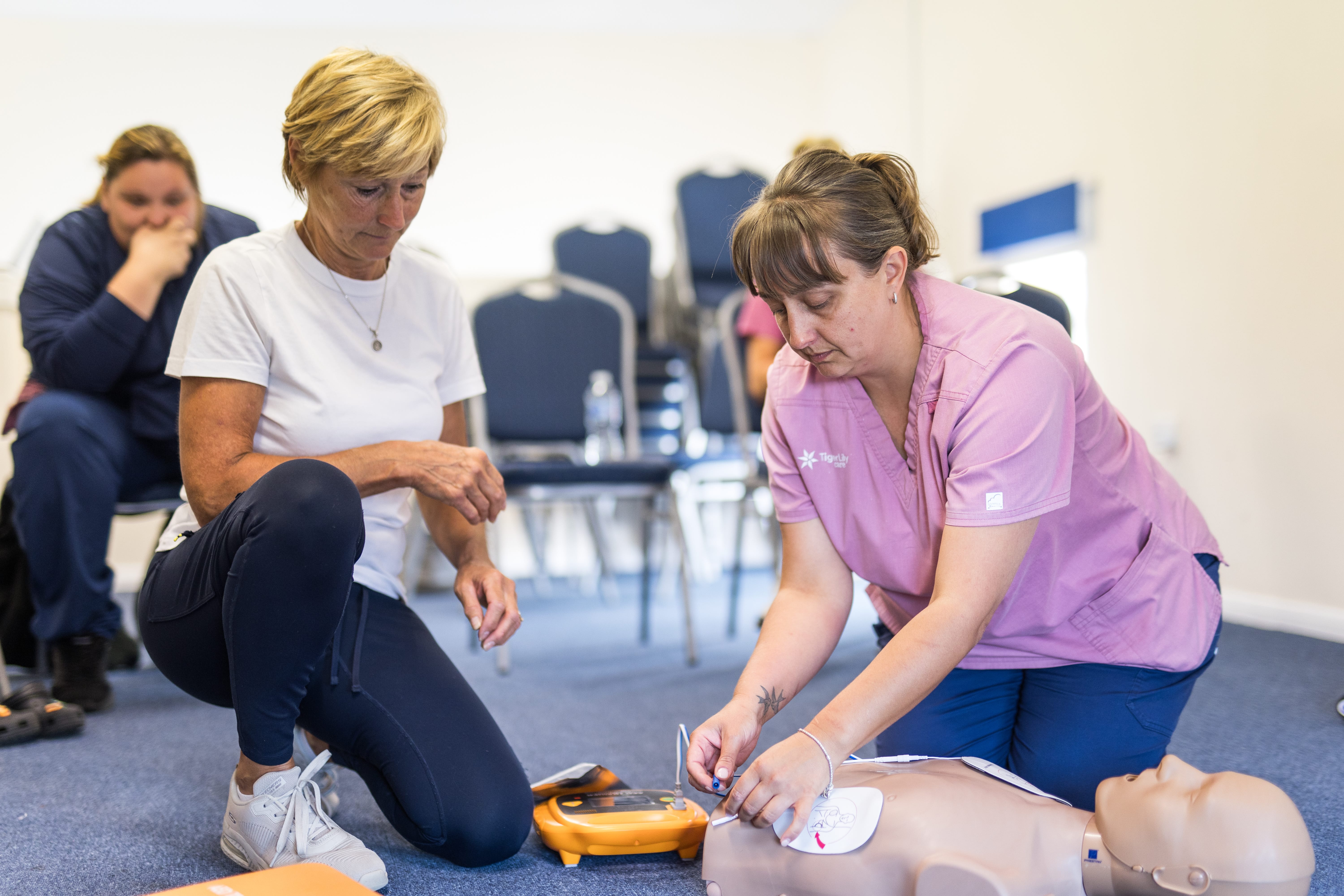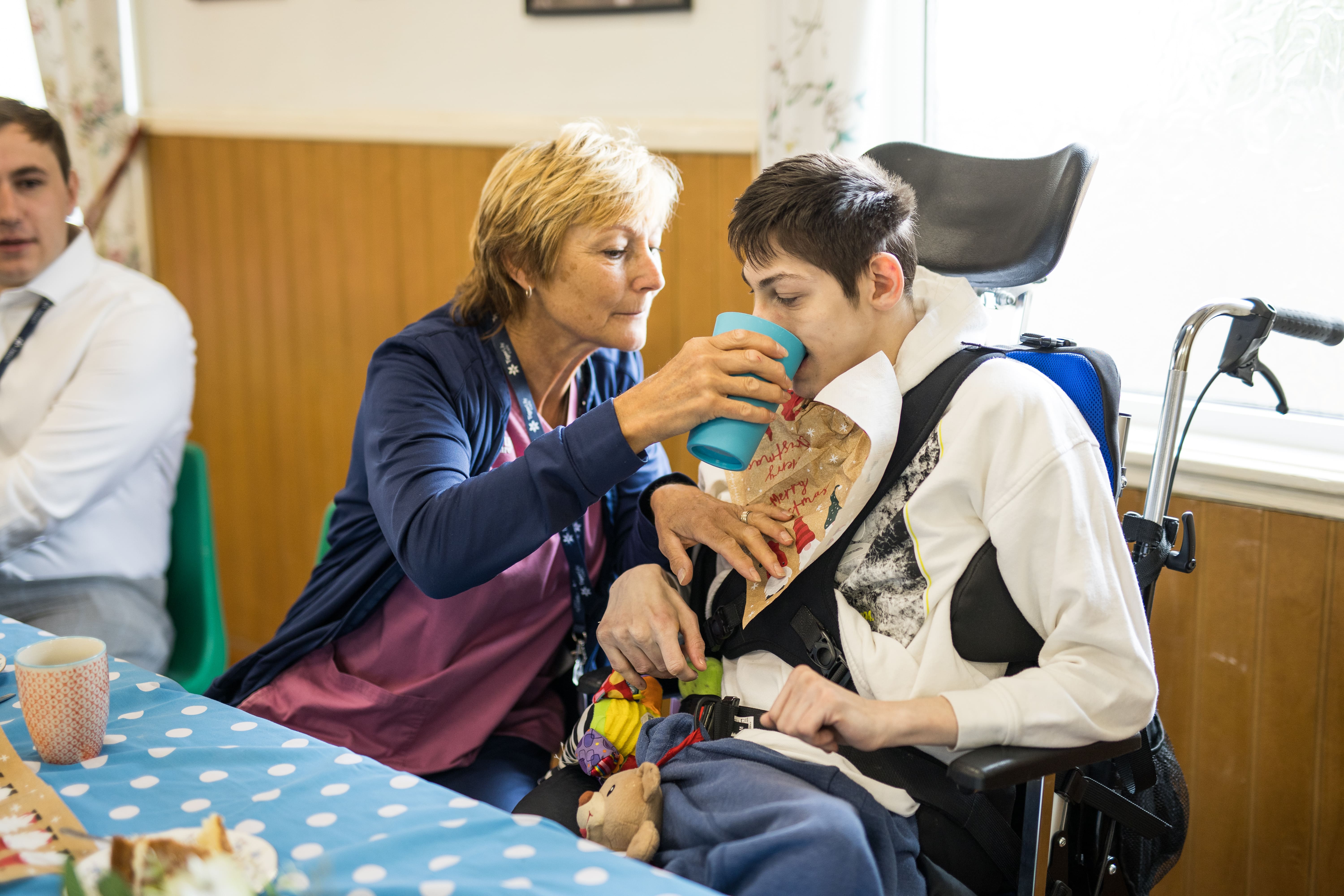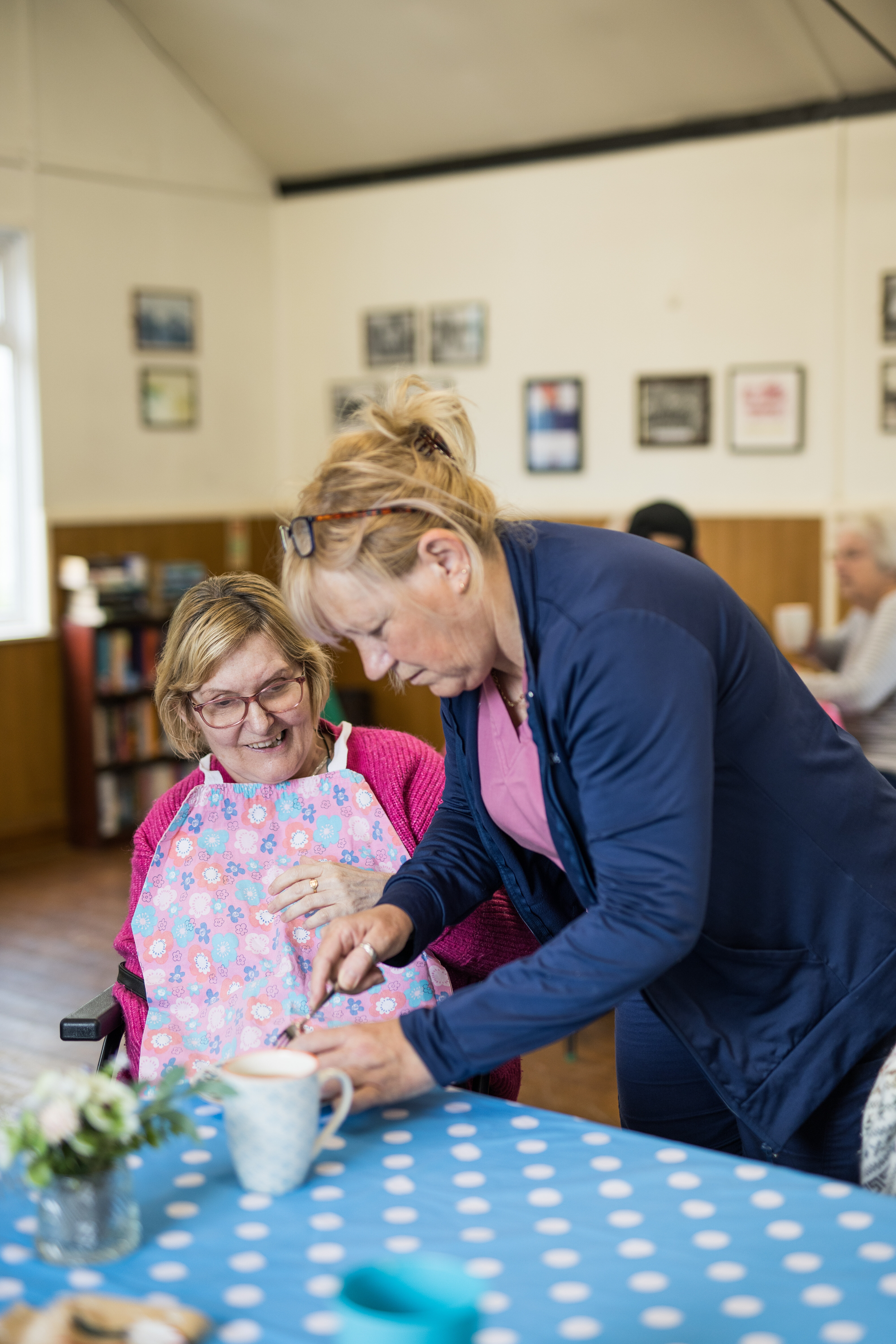Working in care is more than a job. It’s a meaningful and rewarding vocation that can lead to numerous exciting opportunities. However, in the hustle and bustle of everyday caregiving, it can be challenging to know where to begin when it comes to career progression.
With the growing demand for skilled carers, there’s never been a better time to start planning your care career journey. This article will cover pathways for career development, training opportunities, strategies for upskilling, and a range of opportunities available in care.
Why Career Development Matters in the Care Sector
Care is a demanding job that requires significant amounts of hard work and dedication. Why, when facing the busy day-to-day reality of caring, should time be spent focusing on development and progression?
The Importance of Professional Growth
Focusing on professional development for carers has a number of benefits for the individual, organisation, and society at large:
- Gaining new skills and new competencies
- Increasing job satisfaction
- Promoting role diversity
- Avoiding burnout
- Improving the quality of care given to clients
- Unlocking new roles and opportunities
Changing Perceptions of Care Work
One of the biggest hurdles to overcome when recognising the importance of professional development for carers is overcoming the stigma associated with care roles. In the UK, other professionals, politicians, and the media commonly refer to care as an ‘unskilled job’. In reality, this could not be further from the truth. Care is a valuable profession that requires numerous ‘soft’ skills (those associated with expert communication) and practical competencies.
The benefits of care training are becoming increasingly understood with the continued rollout of formal training, certification, and formal recognition programs. As the world changes, it’s important to keep up with the changes in training expectations. However, development shouldn’t just be seen as a ‘requirement’ but as an opportunity to gain skills and opportunities previously unavailable.
Core Skills and Qualities for a Successful Carer
To fully understand the range of development options available to carers, we must first understand the skills and qualities of an excellent carer.
Essential Soft Skills
Soft skills refer to the range of non-physical or ‘non-technical’ skills that an individual develops. These skills are equally, if not more important than technical knowledge. Key soft skills include:
- Clear communication
- Empathy
- Patience
- Reliability
- Active listening
- Time management
- Critical thinking
- Conflict resolution
- Adaptability
- Dynamic approach
- Organisation
- Leadership
Technical Skills and Knowledge
Alongside excellent soft skills, competence in technical skills is a core part of what makes up a brilliant carer. Important technical skills include:
- Care methods
- Medication management
- Mobility assistance
- Wound care
- Health assessment
- Record keeping
- Safeguarding procedures
- Nutritional assessments
- Personal care
Opportunities to Learn These Skills
There are a variety of ways in which both soft and technical skills can be learnt. Ultimately, the simplest form of training is acquiring on-the-job experience. Observing and getting hands-on experience with senior colleagues is a great way to pick up on key soft skills being put into action. Next time you’re on shift with a respected colleague, try to notice what they do and how their behaviours map onto the soft skills listed above.
Technical training can be undertaken in a number of ways. This may include on-the-job training, a mentorship program, skills sessions, or accredited courses.
Career Pathways and Advancement Opportunities
There are numerous career development routes and opportunities for advancement in caring. However, it’s always worth remembering that being content in the job you are currently doing is also a valid and rewarding career option. If you're looking for further opportunities in the profession, please continue reading the information below.
Progression Within Care Roles
There is no ‘one size fits all’ when it comes to caring. Several roles exist within the care team structure, including:
- Care Assistant
- Senior Care Assistant
- Registered Manager
- Care Quality Lead
Roles may vary between organisations and require different levels of experience and competencies to apply. Each job will come with its own unique rewards and challenges, and it’s worth considering the pros and cons of each relevant to what you are looking for.
Specialist Roles
Many organisations offer specialist roles that focus on a specific aspect of caring or work with a unique client group. Common specialist roles include:
- Dementia specialist
- Palliative care
- Learning disability support
- Rehabilitation and recovery
- Children and younger persons' care
- Live-in carer
- Complex needs and challenging behaviour care
Transition to Alternative Careers
After gaining many new skills and a variety of unique experiences in care, people sometimes look to continue their journey in a new role outside of care. Over the years, a carer will have developed several transferable skills that benefit their transition into a different role. Common careers that carers go into include:
- Nursing (often via access courses or the apprenticeship route)
- Healthcare assistant
- Physical and occupational therapy
- Social worker
- Care management
- Care administration
Training, Qualifications, and Education Options
Several opportunities for training and further education exist within the caring sector. The information below is not exhaustive, and there may be variations in the opportunities available locally.
Entry-Level and Mandatory Training
Some qualifications and educational opportunities are required for working in care. Common mandatory training courses include:
- Care Certificate - recognised as the standard for induction into care. Many organisations require this or will provide this as a result of completing initial carer training.
- Safeguarding
- Moving and handling.
- Medication management
- Health and safety
- Fire safety
- First aid and Basic Life Support (BLS)
Further Qualifications
There are many opportunities for advanced qualifications in care. Although none of these are mandatory, they are regarded as a fantastic opportunity to gain skills and open up new career advancement opportunities.
- National Vocational Qualifications (NVQs) - a work-based qualification that recognises development in the ‘soft’, technical, and knowledge-based skills in caring. The most common NVQs in this sector are Level 2 and Level 3 qualifications in Health and Social Care.
- Advanced qualifications - these are more intensive qualifications that teach specialised care skills. Commonly, Level 4 or 5 certificates in Adult Care or Health and Social Care are undertaken. These qualifications are often done in advance of career progression to leadership or senior roles.
- Health and Social Care degrees - these are university-based courses, typically undertaken alongside practical work in the field. These qualifications open up opportunities in senior leadership or management.
Online Learning and Funding Support
The nature of care means that the traditional approach to education, which involves spending weeks in the classroom, is not usually suitable. As such, most care education is delivered through flexible and on-the-job programs. Many educational providers offer part-time courses that blend practical skills sessions with online learning materials.
The national need for carers has led to the development of various funded opportunities for their development. Level 2 and 3 NVQs, as well as access courses, can usually be undertaken free of charge with full government funding. Other opportunities may also attract grants, bursaries, or employer funding to support completion.
Building a Long-Term, Fulfilling Career in Care
Alongside undertaking practical training and education, it’s essential to develop a strategy for personal development. Take some time to consider what matters most to you in your career and how you can achieve it.
Setting Goals and Finding Mentors
The first step in building a career plan is to define your goals. Consider what you are looking for in a career. Do you want a challenge? Do you want stable work hours? Do you want to move into leadership? One way to map out your approach is to create a Personal Development Plan (PDP). A PDP is a standard template that supports you in identifying your goals and outlining the steps to achieve them.
Personal development is a daunting prospect for anyone. A mentor is an experienced individual who can offer guidance, support, and advice throughout your career. Many organisations provide formal mentorship programs. Regardless, seeking out a role model can have numerous benefits when it comes to advancing your career.
Balancing Passion with Practical Growth
Development isn’t just about climbing the career progression ladder. Fostering a successful long-term career in care involves carefully building a job that prioritises a healthy work-life balance. Consider what goals you have outside of your job, and how your personal development plan can address these needs as well.
Learning opportunities do not have to focus exclusively on the technical skills of care. Many courses and skills sessions cover important personal development topics, such as emotional resilience, avoiding burnout, and stress management.
Always remember, a successful career balances passion and hard work with personal growth and resilience.
Conclusion and Key Takeaways
Care is a valuable, challenging, and rewarding career. By focusing on personal and professional development, you can build a lifelong career that provides a range of exciting and fulfilling opportunities. Invest in yourself today to build a path towards the rewards of tomorrow.
There is a wealth of information online about the training opportunities available to carers. Alternatively, consider seeking the support of a career advisor. For more information about available care roles and the opportunities we can provide, contact us today.









